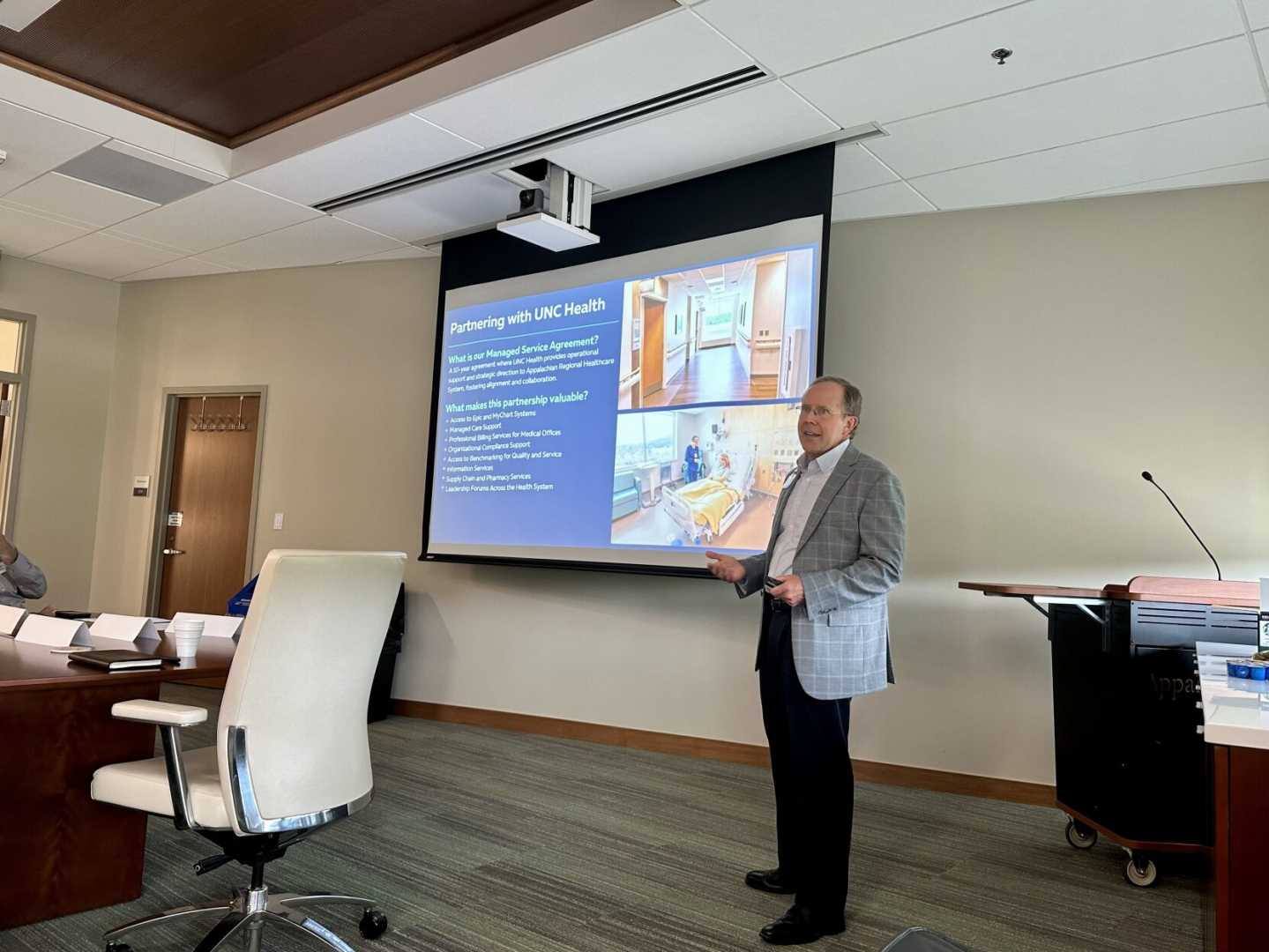Health
UNC Health CEO Addresses Challenges in Rural Health Systems

BOONE, N.C. — Nathan Nipper, President and CEO of UNC Health Appalachian, discussed ongoing challenges faced by rural health systems during a meeting with the Watauga County Economic Development Commission in August.
Nipper, in his role for nearly eight months, highlighted the impact of federal policy changes, workforce shortages, and rising costs on healthcare delivery. “We’re going to continue to be as resilient and durable in an organization as we can,” he said. “And right now we’re on the right track to do that.”
The One Big Beautiful Bill Act, signed into law in July, is expected to cut Medicaid and other healthcare funding, potentially stripping $850 million annually from UNC Health by the tenth year. Nipper estimated UNC Health Appalachian alone could see a loss of $18 million a year by year seven.
“What we know about Medicaid simply is that as the work requirements come into place, it gets harder for people to hold onto their coverage,” Nipper explained. He noted that about 10 percent of patients at UNC Health Appalachian rely on Medicaid.
In addition to policy changes, Nipper pointed to rising medical supply costs, which increase by 8 to 10 percent yearly. The CEO particularly mentioned the soaring costs for specialty drugs, such as chemotherapy. “It’s easy for us to deliver a $20,000 dose of chemotherapy to a patient. You stack tariffs on top of that, it gets even harder,” he said.
UNC Health Appalachian operates three facilities, including Watauga Medical Center in Boone, employing over 1,500 staff members and recording approximately 400,000 patient visits in 2024. Nipper underscored the importance of local governance, stating, “They don’t own us. They don’t govern us. We are totally locally governed.”
Workforce retention has been a priority, with turnover rates falling from over 30% to under 20%. However, recruitment remains difficult due to housing and childcare shortages. “We can’t solve the problem, but we want to be one of the fingers on the hand that can,” he added.
Despite the challenges, Nipper highlighted ongoing investments in technology, such as a successful robotic surgery program that logged nearly 500 cases in its first year. Emergency services at Cannon Memorial Hospital have shown improvement, with the department’s patient satisfaction ranking in the 98th percentile nationally.
Nipper stated that collaboration with local entities, including schools and chambers of commerce, is vital to strengthen regional healthcare. He emphasized building training pathways for local students to ensure they can stay in the High Country for their careers and care.
“We’re highly focused on delivering a reputable, quality, patient-centered program for the community,” Nipper concluded.












